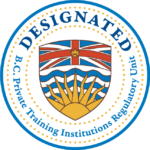One of the key goals of this screenwriting program is for your script to emerge as a realistic contender for production. Write your own screenplay for an original, marketable feature film—the true mark of a professional screenwriter.
WRITING FOR FILM + TV PROGRAM TIMELINE
FEATURE SCREENPLAY
TV PILOT
An original pilot script is still considered the best way to gain a toehold in the industry. Develop and write your own 30-minute or 60-minute TV pilot script.
ADAPTATION SCRIPT
Film adaptations of books, television shows, or true stories have been around since the dawn of television. But they are becoming increasingly popular in today’s market, grossing a full 53% more than original screenplays at the box office. You will be assigned a short story to adapt into a short screenplay.
VIDEO GAME LEVEL OUTLINE
Video games are one of the biggest forms of entertainment, and are in constant need of storytellers. Develop your own concept for a AAA video game. Write the first mission with engaging construction, objectives, stimulus and rewards.
SHORT FILM SCRIPT
The first project for most major Hollywood screenwriters was a short film script. Short films have launched the careers of filmmakers like Christopher Nolan, Taika Waititi, and Ava DuVernay. This project aims to help you learn professional formatting and find your own creative voice.
WEB SERIES SCRIPT
Experience working in a professional writer’s room. Your instructor will bring real-world television experience and act as the showrunner for a series you develop in class. Then collaborate with your peers to write your very own episode.
PITCH PACKAGE
To be a successful screenwriter you must have the skills to sell your scripts. Gain producing skills such as budgeting, scheduling, crewing, casting, and pitching to build a package that will entice studios to produce your script.
COURSES
SCREENWRITING ESSENTIALS
Every screenwriter must first understand the basic building blocks of the screenplay. This introductory course covers foundational topics such as character, three-act structure, dialogue, theme, and genre. You will complete several writing exercises that cover the fundamentals of storytelling and screenwriting before developing your own loglines, outlines, and pitches. Each week will end with a screening of an existing film and an analysis of the film’s use of storytelling, structure, and screenwriting tools.
WRITING FOR TELEVISION
In this comprehensive introductory course, you’ll take your television series concept from initial pitch to a revised pilot episode. Begin with an exploration of the key differences between television and film, then dive into core topics like act structure, plotlines, character development, pilot types, spec scripts, and TV bibles. With hands-on workshops and industry-standard techniques, you’ll craft and refine your series concept, developing a compelling pitch and expanding it into a detailed pitch document. Throughout the course, you’ll gain valuable skills in writing, analyzing scripts, and providing constructive feedback, preparing you to navigate the competitive world of television writing.
By the end, you’ll have the confidence and tools to present your own unique series idea to industry professionals.
FEATURE PREP
In this course, you’ll dive into the key differences and similarities between Studio, Indie, and Made-For-Television (MOW) feature films. You’ll explore the essential elements of storytelling: story, plot, structure, theme, character, conflict, and dialogue, and learn how each format shapes these aspects differently.
SHORTS
This intensive course teaches you how to develop and write short film scripts using professional screenwriting techniques. From concept to final draft, you’ll follow the full creative process: loglines, beat sheets, and multiple script drafts, while receiving feedback through peer workshops.
You’ll build a strong foundation in screenwriting fundamentals, including story structure, character development, visual storytelling, dialogue, tone, and theme. Learn how to evaluate ideas for marketability and format scripts using industry software. Designed for aspiring screenwriters and filmmakers, this course helps you create scripts that are clear, compelling, and ready for production.
COMEDY WRITING
You don’t need to be naturally funny to write great comedy, what you need is an understanding of the rules that make humor work. This course equips you with the tools to identify and develop your unique comedic voice. Through in-class workshops, writing exercises, and studying professional examples, you’ll learn the fundamentals of joke writing and sketch creation. By the end of the course, you’ll not only have a solid understanding of comedy writing but also a style that’s uniquely yours, ready for the stage or screen.
WEB SERIES WRITERS ROOM
In this interactive course, you’ll dive into the collaborative process of developing a short-form digital series for the web. Working alongside your peers in a dynamic writers’ room, you’ll be guided by a senior writer and showrunner who will provide the series concept and help shape the direction.
Through brainstorming sessions, group discussions, and collaborative writing, you’ll engage deeply with your fellow writers to craft a series together. Each student will contribute by writing one episode, collaborating on storylines, character development, and episode structure, ensuring your collective vision comes to life on paper. This course is all about teamwork and honing your skills as you work within a creative community.
FILM GENRE
This course explores the history, development, and purpose of genre in film through a wide range of genres including comedy, drama, horror, sci-fi, fantasy, and animation. You will study the four elements that illustrate genre: character, story, plot and setting, while becoming familiar with common tropes, stock characters, and crucial story beats. After each lecture, you will read the script of a film and analyze the structural elements that define each genre.
FILM HISTORY
Writers have a duty to study, understand, and appreciate the masters. In this course, you will follow the evolving history of film, television, and web series through the lens of different filmmakers. As you journey from the silent era to the rise of movements such as French New Wave and Neo-Realism to our modern times, you will be exposed to a broad list of genres, styles, and countries of origin. Each class involves a screening of a classic work, prefaced with a contextual lecture and followed by discussion.
COURSES
PRODUCING
The producer is involved in just about every aspect of filmmaking: from concept development to funding, shooting, editing, and marketing, a producer’s role has endless layers. Being able to produce is a valuable asset in the industry. As a screenwriter, you are encouraged to be more involved in the production, helping cast and crew work towards a unified vision. You will gain various producing skills (such as scheduling, crewing, budgeting, legalities, insurance, and location scouting) that you can later use to fully produce your own screenplays or other projects.
STORY EDITING
In this course, you’ll be introduced to the art and craft of story editing, one of the most in-demand roles in the industry. To succeed, you’ll need more than just storytelling instincts. You’ll develop a solid grasp of structure, formatting, grammar, and the technical precision required to bring stories to life. Whether you’re refining scripts, shaping narratives, or polishing prose, this course gives you the tools to do it at a professional level.
PITCH DOCUMENT / PITCHING
You’ll learn how to create compelling pitch documents for both feature films and TV series, while also developing and practicing the art of pitching. By the end of the course, you’ll be able to confidently present your ideas to industry professionals.
NETWORKING AND BUSINESS
You may have written a script that is ready to set the world on fire, but how do you put yourself out there? In this course, you will learn how to protect your work, write a resume tailored to the industry, pitch on the page and in the room, and identify networking resources. By the end, you will know how to present yourself professionally and understand why building a strong reputation and developing connections will take you much further than talent alone.
WRITING FOR VIDEO GAMES
The video game industry has evolved into a multi-billion dollar force built on immersive worlds and compelling narratives—and it needs great writers. In this course, you’ll explore the history of game storytelling, from Pac-Man to The Last of Us, and learn what it takes to write for both console and mobile platforms. You’ll dive into key concepts like missions, quests, episodes, and cutscenes, and develop the skills to keep players engaged through story. You’ll write an episode for a mobile game adapted from an existing TV series, then create and pitch your own original console game, complete with a scripted story-based mission.
FEATURE SCRIPT
In this course, you’ll take your feature film idea from initial concept all the way to a complete first draft. Along the way, you’ll develop your story structure, characters, and voice, building the foundation for a compelling, production-ready script.
FACTUAL TV / DOCUMENTARY
You’ll be introduced to the world of documentary and factual television, and discover how your role as a writer shifts in non-fiction storytelling. Through real-world examples, you’ll learn how to shape narratives, structure episodes, and support truth-driven content—distinct from writing for scripted film and TV.
ADAPTATION
You’ll explore the wide range of film adaptations, from faithful translations to loose, inspired-by interpretations. Learn the basics of acquiring adaptation rights and how to identify the core narrative, or “spine,” of a work of fiction. Through hands-on exercises, you’ll outline, write, and revise an adapted short script, building your skills in transforming existing stories into compelling screenplays.
ACTING FOR WRITERS
In this course, you’ll learn how actors approach a script, and how understanding their process can make you a stronger writer. Using current film and TV scripts, you’ll break down scenes with a proven ten-step technique to uncover the emotional truth of the material. Through hands-on exercises, you’ll tap into your imagination and emotional life to deepen character development and create more authentic, performable writing.

INFOCUS FILM SCHOOL
554 Seymour Street
Vancouver, BC V6B 3J5
info@infocusfilmschool.com
+1 604-915-6900


